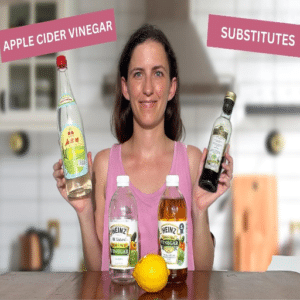Health reasons aside, the popularity of apple cider vinegar (ACV) has been attributed to effective digestive health and blood sugar control. While such benefits cannot be disputed, the search for viable replacements for ACV has gained traction as people now have to take into account how they prefer to consume their health supplements, their diets, and the practices of sustainable living. This article has been prepared to cover the modern science alternatives to ACV, their benefits, which people can use them, and what seasons they can be put into to enhance health and food. The goal is to aid readers looking to revise their health strategies for the year 2025. We have broken down the most current reports alongside inclusions from experts in the field, making this article relevant today.
What are the best substitutes for apple cider vinegar in 2025?
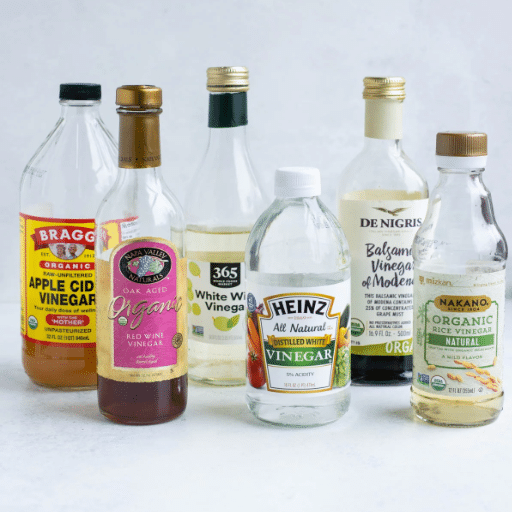
White wine vinegar: The closest match in flavor and acidity
Like apple cider vinegar, white wine vinegar has a subtle flavor and the same acidity level, making it a perfect substitute. White wine vinegar is more versatile because of both its flavor and composition. Research from certain sources suggests that you can use white wine vinegar instead of apple in salad dressings, marinades and various sauces without significantly altering their taste. Because the acidity level is almost the same, all of the uses centered on digestion or detoxing vinegar will have the same effect. This close match gives apple cider vinegar users an accessible option to switch things up.
Lemon Juice: A natural, citrusy alternative
Lemon juice can be an excellent alternative to apple cider vinegar due to its natural acidity and sharp, tangy flavor. Lemon juice has a pH level that is on par with vinegar which makes it perfect for salad dressings, marinades and even some baked goods. In addition to that, lemon juice has citric acid, which is beneficial for digestion and detoxification, something that apple vinegar is commonly known for.
Vinegar from rice: A more palatable variation with identical rewards
Rice vinegar is a milder substitute that bears similarities to apple cider vinegar in terms of its applications and health benefits while still having its own traits. It is less tart than a majority of vinegar, with a content of acetic acid usually between 4% to 7%, which makes it milder in taste. This makes rice vinegar exceptionally grade for light foods like sushi, stir fried vegetables, and salad dressings. It is also rich in amino acids and minerals, particularly potassium, which can boost metabolism and help maintain heart health. Because it is gentler on the stomach, rice vinegar’s lower acids appeal more to those who want a better taste without being heavy on the stomach. The rice or rice wine used in making rice vinegar gives it a nuanced sweetness that balances its tang. These features enable rice vinegar to smoothly integrate with various culinary and dietary requirements.
How can I replace apple cider vinegar in recipes?

Replacing ACV in salad dressings and marinades
When I need to substitute apple cider vinegar (ACV), such as in a salad dressing or a marinade, I frequently use white wine vinegar, lemon juice, or rice vinegar. For example, white wine vinegar has a less harsh taste than ACV while still being adequately flavorful. Lemon juice, on the other hand, works well for lighter recipes because of its refreshing citrus flavor. Also, rice vinegar is perfect for sweeter marinades and Asian-inspired dishes. When substituting, I typically use them in a 1 to 1 ratio so the dish maintains its intended level of acidity and flavor balance.
Using substitutes in baking recipes
For baking recipes, I find precision to be essential. For example, when replacing baking powder, I usually substitute it with baking soda and an acid. This could be either cream of tartar or white vinegar. The standard substitution ratio is 1 teaspoon of baking powder to ¼ teaspoon of baking soda plus ½ teaspoon of the acidic ingredient, effectively replacing the powder’s leavening capabilities.
If I cannot use butter, I sometimes choose unsweetened applesauce or even coconut oil, depending on the dish. Unsweetened applesauce is especially suitable for cakes and quick bread because of its high moisture content. The typical substitution ratio is 1:1, so one cup of butter is replaced with one cup of applesauce. Coconut oil has its advantages, too. It is an excellent alternative to butter because it is easier to spread and blend at room temperature and ideal for cooking at higher temperatures. However, one should keep in mind that coconut oil solidifies at cooler temperatures, so some changes in mixing techniques may be required.
When using almond or soy milk as dairy milk alternatives, I make a 1:1 substitution so that the total volume of the batter remains the same. The fat content in these alternatives may vary slightly, but they are generally suitable for most baked products. These replacements are based on my experience and are consistent with the recommendations of significant baking institutions.
Substituting ACV in drink and detox recipes
Usually, I substitute lemon juice for apple cider vinegar (ACV) when it comes to drinks and detox recipes since it adds the acidity and taste while providing additional health advantages such as vitamin C and antioxidants. White vinegar is still an option, although it is sharper and may not have some of the health benefits attributed to the ACV. For those looking for less acidity, I have found that lime juice diluted with water works great for flavor and pH range in most other recipes. It is reassuring these substitutions are backed by most people and credible nutritionists.
What are the health benefits of apple cider vinegar substitutes?
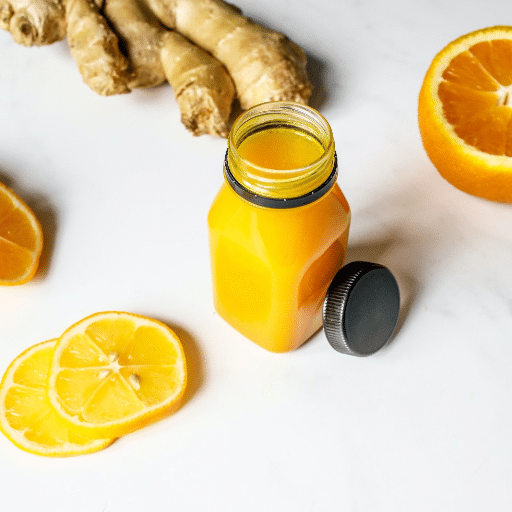
Alternatives to ACV: their nutritional value
While evaluating the nutritional value of apple cider vinegar (ACV) substitutes, I have noticed that although white vinegar is rich in acetic acid, it is low in nutrition. Unlike white vinegar, lemon juice has a high concentration of vitamins. Furthermore, it aids in immune system function due to its antioxidant properties. Moreover, lime juice is similar to lemon juice but it has slightly less vitamin C per serving. Nutrient density and acid content vary among these alternatives, however, all can be used depending on the desired nutritional and culinary results from credible sources.
Arguments in favor of using vinegar substitutes for weight loss
In my studies, it has been noted that substitutes of vinegar like lemon, lime, and even diluted ACV can help with weight loss because they improve digestion, control blood sugar and reduce appetite. In fact, lemon and lime juice are known for their low calorie content and ability to boost hydration, which makes them popular alternatives for weight management. Yet, it is worth mentioning that there is not enough evidence to entirely rule out the negative parts of using these substitutes. While using these alternatives, it is necessary to maintain a balanced diet and workout regularly.
Gut health improvements with ACV replacements
AVC (Apple cider vinegar) replacements such as lime or lemon juice help with gut health improvements because they help promote the growth of healthy gut bacteria and aid in digestion. Research conducted among multiple sources shows that the juice of lemon and lime helps in digestion due to their citric acid and polyphenol content. Still, these effects can be bettered by AVS-fermented substitutes.
- pH Level: Whereas lemon and lime juice have a pH between 2-3, which allows the juices to create an acidic environment that enables the digestion enzymes to work, AVS, on the other hand, has higher pH levels.
- Citric Acid Content: Not only does citric acid promote better digestion but it also enhances nutrient absorption, especially for minerals like magnesium and calcium.
- Antioxidant Properties: Vitamin C plays a crucial role in fighting oxidative stress, which helps mitigate it in the digestive system.
- Absence of Acetic Acid: Since AVC substitutes don’t contain acetic acid, they are less potent regarding antibacterial properties and prebiotics.
These substitutes make up a crucial part of the nutrient-rich diet one must follow alongside carefully observe how one’s body responds to maximize gut health.
Can I use different types of vinegar instead of apple cider vinegar?

Red Wine Vinegar: A Strong Substitute with Antioxidants
You can, to some extent, substitute apple cider vinegar with the use of red wine vinegar. Red wine vinegar has antioxidant resveratrol, which is beneficial for heart health and has anti-inflammatory properties. Although it possesses less acetic acid than apple cider vinegar, red wine vinegar is flavor-rich and may also contribute positively to recipes and general health if taken as part of a balanced diet. However, when compared to apple cider vinegar, the prebiotic benefits are not as pronounced.
Balsamic Vinegar: A More Sugary Alternative with Distinct Advantages
Balsamic vinegar is made from fermented grape must, thus it is rich, sweet, and has a smooth texture making it great for savory and sweet meals. It also possesses antioxidants and polyphenols which help reduce oxidative stress and lower cardiovascular risks. Furthermore, the mild acidity helps with digestion when taken in small amounts. I often use it as a dressing in salads and marinades or drizzle it over fruits as it has many flavor-enhancing health benefits.
Champagne vinegar offers finesse and delicateness.
Champagne vinegar is a mild yet elegant ingredient that boasts versatility. It is produced through the fermentation of champagne or champagne grapes. Due to its crisp nature, the extract’s mildness elevates dishes without completely slaughtering their natural taste. I often use it in vinaigrettes, marinades, or even using it to deglaze pans for a distinct taste. The extract has a lighter flavor, which makes it an invaluable piece for enhancing culinary creations. Additionally, it can be used with seafood, delicate greens, or even as a finishing drizzle.
Are there non-vinegar substitutes for apple cider vinegar?
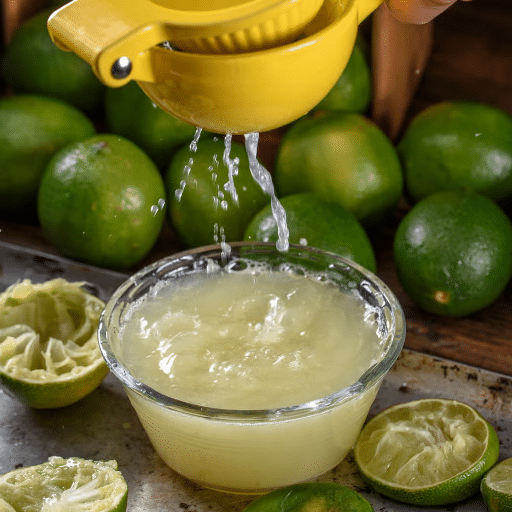
Citrus juices: substituting ACV with lemons, limes, and oranges.
The effectiveness of using lemon, lime, or orange juices in place of apple cider vinegar (ACV) dramatically relies on the acids within the juice and their corresponding flavor profiles. With a pH balance of 2-3 lemons are more acidic than ACV which makes them an excellent alternative for recipes that need an acidic touch. Limes have a similar acidity and flavor to lemons but are a bit more pungent, changing the dish’s flavor profile. Although orange juice is less acidic than limes and lemons, ranging between 3.3 and 4.2 pH, its higher sugar content makes it a perfect substitution for recipes with a hint of natural sweetness, like marinades and dressings.
These substitutes preserve the acid balance needed for recipes but may taste different. However, when exact acidity is required, that is, when preserving and pickling, lemon or lime juice is the best choice since it has more stable acidity. The same goes for ACV substitutes. The orange juice can work but one needs to be very careful not to use too much or the sweetness and flavor will overpower the dish. When using these citrous alternatives, always consider the particular functions of acidity and flavor in specific recipes.
Kombucha: A probiotic alternative
Kombucha is a handy probiotic alternative for apple cider vinegar since it has acidity and, because it is fermented, it has a few extra health benefits. It dosn’t replace well in all recipes but is super useful for me in salad dressings or marinades, where its acidity aids in bringing out the other flavors. Nevertheless, I try to factor in its mild sweetness and its different pH level from ACV, mostly in instances where an exact acidic balance, like in pickling or preserving, is needed.
Apple juice concentrate: Apple Essence In A Jar
Apple juice concentrate offers the apple cider vinegar flavor and captures the fruity essence, but in a gentler touch of acidity. When using it in recipes, I offset the natural sweetness by reducing sugar or sweeteners to stay balanced. However, it is instrumental in dressings, sauces, and baked goods where the apple flavor is sought, but its lower acidity may not be appropriate for uses like pickling, which requires an exact pH.
What are the trending apple cider vinegar substitutes for 2025?

Emerging fermentation drinks to substitute for ACV
kombucha, water kefir, and kimchi juice seem to stand out as ferment drinks made as substitutes to vinegar. All three have specific characteristics and can be used based on the functional objectives and recipe needs.
1. Kimchi Juice
Kimchi juice is made from extracting the brine of fermented kimchi. Its tangy brine shows excelent provile for savory dishes. The salt content is much higher than apple cider vinegar, and so it helps to adjust to other ingredients. Kimchi juice works well for soups, dressings, and marinades. It also contains high acidity, with a pH level around 3.5- 4.5.
2 .Kombucha
Another fermented drink from tea, kombucha, works well for versatile dishes such as vinaigrettes, as it is slightly fruity and has a mild acidic touch to it with a pH ranging from 2.5 – 3.5. To substitute it to apple cider vinegar, fermenting the batch enough to reach high acidity is a must. The fizzy texture that comes along with it is also an added bonus for unique culinary applications.
3 .Kefir Water
Water kefir’s profile is milder than its cousins, as its pH ranges from approximately 4.0 to 4.6. Even though the probiotic goodness within it makes it a great ACV substitute for many wellness recipes, it’s softer profile misses the mark in mimicking the sharpness of ACV. Because of its lower acidity, I balance this downside by combining it with higher acidic ingredients, such as pickling, when recipes require it.
Therefore, these alternatives will introduce a new flavor and acidity profile in recipes and are useful options for specific cases. With thorough knowledge of their technical limits such as pH and paired flavor profiles, I can make adjustments using substitutions within the various cuisines.
Plant-based vinegars are growing in popularity.
Vinegars made from plants are gaining market shares due to their unique flavors and health advantages. These shifting trends cater to changing preferences of consumers for naturally sourced products. There are staples for wellness and culinary uses like apple cider and rice vinegar, and new market entrants such as pomegranate and fig vinegar. Some new products catching my attention are date vinegar, which is sweet, and coconut, which contains amino acids. I think most people can agree with me regarding the shift towards functional nutrition and the adaptability of these vinegar in recipes.
Other exciting choices to watch include superfood-infused ones.
This trend of superfood-infused vinegar is gaining popularity because of its taste and nutritional advantages. Vinegar is increasingly formulated with turmeric, ginger, and spirulina because these ingredients offer antioxidant, anti-inflammatory, and immune-enhancing benefits. For instance, I personally find turmeric-infused apple cider vinegar to be fascinating. It provides the metabolic benefits of ACV while without turmeric’s well-known health benefits. In addition, berry infused options like acai or elderberry are on the rise owing to their high vitamins and polyphenols. These innovations directly respond to the interests of the consumers, who are now more inclined towards functional foods that boost their wellness alongside the recipes they may already use.
Reference sources
Frequently Asked Questions (FAQs)
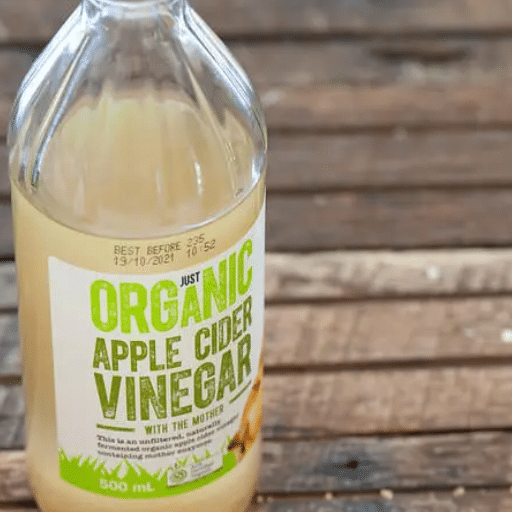
Q: What is the best apple cider vinegar substitute?
A: While there’s no perfect substitute that matches all properties of apple cider vinegar, some excellent alternatives include white wine vinegar, rice wine vinegar, or lemon juice. The best substitute depends on the recipe and desired flavor profile. For fruitiness and sharpness, white wine vinegar is often the closest match.
Q: Can I use lime juice instead of apple cider vinegar?
A: Yes, lime juice can be a good substitute for apple cider vinegar, especially when a recipe calls for a bright, acidic flavor. Use an equal amount of lime juice to replace apple cider vinegar. Keep in mind that lime juice will add a distinct citrusy flavor, which may slightly change the taste of your dish.
Q: How do I use apple cider vinegar substitutes in recipes?
A: When using a substitute, start with a 1:1 ratio. For example, if the recipe calls for 1 tablespoon of apple cider vinegar, use 1 tablespoon of the substitute. Adjust to taste, as some substitutes may be stronger or milder. Remember that each substitute will bring its own unique flavor, so you may need to experiment to find the right balance.
Q: Can I use malt vinegar as a substitute for apple cider vinegar?
A: Malt vinegar can be used as a substitute, but it has a stronger, more distinct flavor than apple cider vinegar. It works well in savory dishes, particularly those with British influences. Use it sparingly and taste as you go, as its robust flavor can overpower other ingredients. You may want to dilute it slightly with water to mimic the milder taste of apple cider vinegar.
Q: What’s a good unseasoned substitute for apple cider vinegar?
A: Distilled white vinegar is an excellent unseasoned substitute for apple cider vinegar. It’s neutral in flavor and color, making it versatile for various recipes. However, it lacks the fruity notes of apple cider vinegar, so you might want to add a touch of apple juice or a pinch of sugar to compensate for the missing fruitiness if the recipe requires it.
Q: Can I use rice wine vinegar instead of apple cider vinegar?
A: Yes, rice wine vinegar is a great substitute for apple cider vinegar. It has a mild, slightly sweet flavor that works well in many recipes. Use it in a 1:1 ratio when replacing apple cider vinegar. Rice wine vinegar is particularly good in Asian-inspired dishes and can add a subtle depth to dressings and marinades.
Q: How does sherry vinegar compare to apple cider vinegar as a substitute?
A: Sherry vinegar can be an excellent substitute for apple cider vinegar, especially in salad dressings and sauces. It has a complex, slightly sweet flavor with nutty undertones. Use it in a 1:1 ratio, but be aware that its flavor is more pronounced than apple cider vinegar. Sherry vinegar works particularly well in Mediterranean and Spanish-inspired dishes.
Q: Can white wine vinegar or red wine vinegar be used instead of apple cider vinegar?
A: Both white wine vinegar and red wine vinegar can be used as substitutes for apple cider vinegar. White wine vinegar is often the closer match due to its lighter color and crisp acidity. Red wine vinegar has a bolder flavor and may alter the color of light-colored dishes. Use either in a 1:1 ratio, adjusting to taste as needed. These wine vinegars work well in vinaigrettes, marinades, and many cooked dishes.

